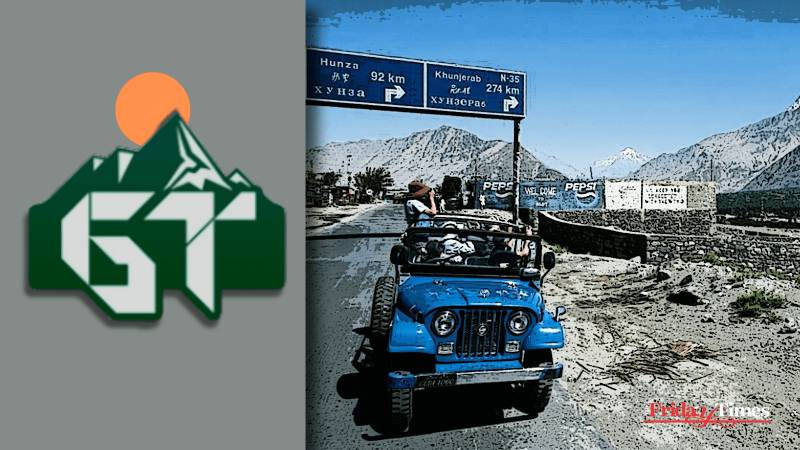
Gilgit-Baltistan is once again on the brink of a massive, region-wide protest. This time, the reason is defiance against the controversial leasing of 37 rest houses and forest sites to a newly formed company—Green Tourism Pvt. Ltd—against the wishes of the region's residents.
In a news conference in Gilgit, Awami Action Committee Chairman Ahsan Advocate denounced the regional government's decision to lease public property without public consent. Terming the decision as unacceptable, he vowed to leverage public power to compel authorities to revoke this decision.
Public sentiment is overwhelmingly against the government's decision, with widespread outrage over the non-transparent leasing process of these prime locations. Angry residents have inundated social media platforms, expressing their willingness to pay the government double the money agreed with the mysterious company.
Questions about how and why this nascent company secured such a massive deal without openly bidding for it are rampant both online and offline and amongst the public. The local populace believes tourism should aim to empower and facilitate the community rather than serve as a profiteering venture for outsiders.
Given that tourism is the sole industry and primary source of subsistence for residents, leasing these assets to non-locals is seen as displacing the local community in favour of external interests. This practice is being termed as "resource grabbing in the guise of [promoting] tourism" and represents a significant disenfranchisement of locals from their natural resources and prime tourist locations. Locals see this resource grab as rubbing salt in their wounds, where the region still struggles to provide them with basic amenities such as electricity and internet connectivity. The frustrated residents feel compelled to express their discontent more vociferously in public.
As with many issues in the country, the expectation of a positive response in this regard from the authorities seems increasingly clichéd. This is particularly true given that the region has been mired in numerous problems, including an identity crisis that has persisted for over seven decades now. More concerning is the fact that the state appears reluctant to acknowledge even the basic rights of locals to voice their concerns, let alone offer a conclusive and comprehensive resolution. This reluctance was starkly evident in a recent incident where peaceful protesters, mainly composed of students, gathered in front of the Islamabad Press Club to express their grievances. At least ten of them, including myself, were detained on the pretext of lacking a 'No-Objection Certificate' (NOC). Despite arriving peacefully and expressing a willingness to disperse if required by the law, we were forcibly taken to Margalla police station and detained for three hours. What purpose did our detention serve? None, except to sow undue resentment in the hearts of peaceful and law-abiding citizens, revealing a stark contrast to the commonly held belief that the state embodies a nurturing, mother-like presence.
Historically, our decision-makers have been slow to address such escalating discontent, often exacerbating conflicts as a result
At the same time, recent developments in the other semi-autonomous region — Azad Jammu and Kashmir (AJK)— have been similarly problematic, if not worse and more out of control. The movements in AJK and G-B highlight a significant, albeit unpalatable, truth for the central government: these uprisings are being led by Awami Action Parties, an alliance encompassing a broad spectrum of society, including civil society members, political activists, labourers, traders etc. This shift indicates a growing disillusionment with mainstream political parties and a burgeoning faith in these indigenous movements. This signals a pressing need for the central government to reflect on why the populace is increasingly disenchanted and reluctant to trust mainstream parties. This phenomenon underscores the longstanding marginalization and disenfranchisement that these regions have endured under federal governance.
It is pertinent, however, to grasp the fact that AJK and G-B exhibit distinct administrative and socio-political dynamics. AJK enjoys a comparatively empowered setup with its own constitution, government, and legislative assembly, alongside a system of tax collection, revenue generation, and substantial federal grants with an elected prime minister and president at the top. Conversely, G-B's legislative assembly is largely nominal, lacking independent revenue sources, taxation systems, or significant federal grants, relying instead on the often meagre and reluctantly accepted allocations from the central government. Administrative control over both regions remains firmly in the hands of the federal bureaucracy, compelling elected representatives from mainstream political parties to adhere strictly to party directives. The recent resignation of Health Minister Suhail Abbas, citing the inability to make independent decisions and pervasive external influence, exemplifies this issue.
Decades of constitutional neglect and deprivation of basic amenities, such as internet access, healthcare, quality education, jobs and subsidized wheat, have particularly strained the people of G-B, leading to the unprecedented demonstrations of recent weeks.
Regarding these intensified and vehement demonstrations, it is crucial to note that a new generation has come of age and is spearheading the drive in these regions to secure their rightful entitlements. However, historically, our decision-makers have been slow to address such escalating discontent, often exacerbating conflicts as a result. As the adage goes, "A stitch in time saves nine," yet the federation appears to persistently disregard this wisdom when it comes to safeguarding the rights of peripheral populations. The movements in AJK and G-B serve as a critical lesson for the central government. It is imperative that the federal government takes conclusive steps to address the pervasive issues in these long-deprived regions and end the cycle of neglect and depravity, which could otherwise have dire consequences for the stability and unity of the federation.

